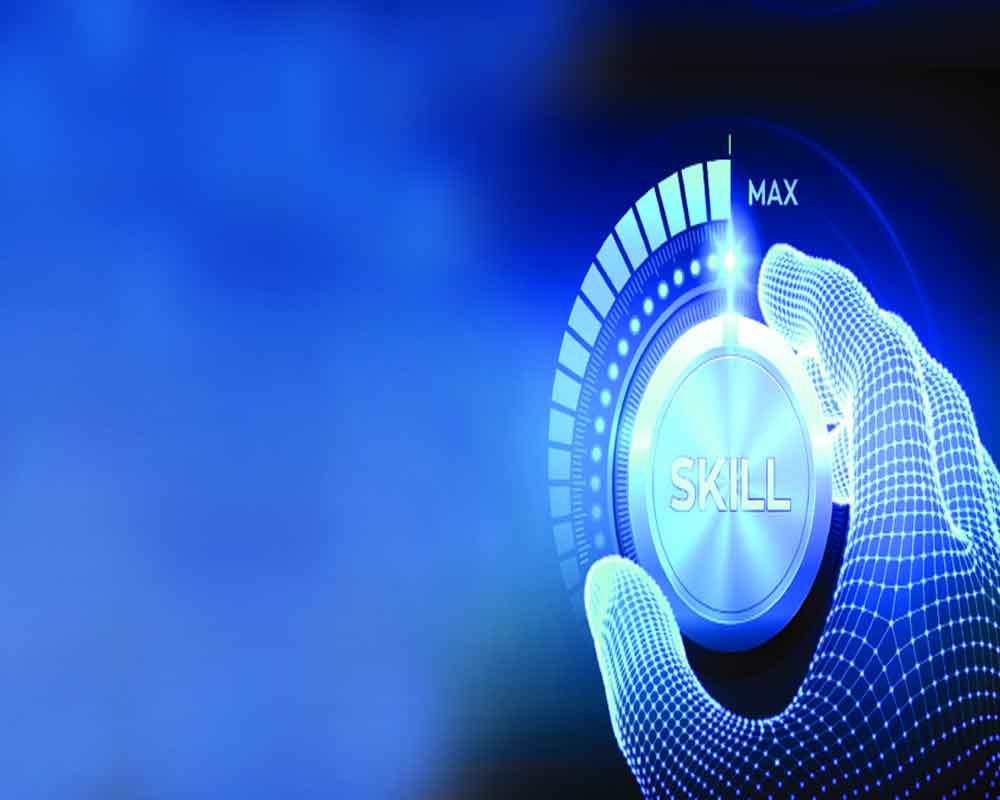In a competitive work environment, in order to move up the ladder, it is important to not only have a degree but develop soft skills as well, says Ketul Acharya
Developing soft skills is imperative to growth and success for the future’s aggressive work culture and aspiring youth. Here is a list of eight soft skills to check-out that they must develop to meet the needs of the 21st century.
Interpersonal communication skills: Interpersonal skills refer to your ability to communicate and build relationships with others in everyday life. Often referred as good people skills, it has a propensity to integrate both your innate personality traits (of listening and speaking) and agility to handle difficult social situations. Without interpersonal skills, you can’t advance in your career.
Make the deliberate effort and follow these simple ways to improve your interpersonal communication skills over time:
- Begin with identifying your areas of improvement
- Focus on basic communication skills both verbal and body language
- Listen carefully and practise empathy
- Learn to manage differences
- Reflect on your communication experience and improve
Complex problem-solving: Albert Einstein, known to the world for his mass-energy equivalence formula, believed that if he was given 20 hours to solve a problem, he would spend 18 hours on understanding the problem and 2 hours on the solution. He didn’t think he was that smart, it’s just that he had the skill of persistence to stay with problems longer than most people. He maintained a strong belief in the necessity of eliminating biases. Einstein also stated that problems require a new level of consciousness beyond the one that created the problem.
Complex problem-solving skill requires objective, being able to see the holistic picture and systematic analysis of the problem. Complex problem solving can be developed over time. However, to hone this skill, you can follow the steps:
- Focus on identifying the possible solution
- Adapt the approach of asking whys to define the problem
- Simplify the problem and come up with simple solutions, to begin with
- List out as many solutions as you think
Think laterally, this could give a different perspective to the problem and possibly different solutions
- Evaluate the ideas and implement the most effective solution with a defined timeline in hand
- Assess the solution and learn for the future
Every problem means that something is not working well and needs a new way to resolve it.
Critical thinking skill: It allows you to understand and address the situation basis on the facts and information available. Critical thinking involves being able to use your logic and reasoning to dissect a problem or an issue, think of viable solutions and weigh the pros and cons of each approach. How to improve critical thinking skill?
- Ask basic questions
- Questions your basic assumptions
- Try reverse thinking to find a solution
- Evaluate the existing information
Creativity: Today, industries can’t thrive without creativity. Their brand names are uplifted basis the creative work only. Some brand slogans leave a high remembrance imprint on your mind as they relate directly to the masses.
Creativity is not just limited to being artistic, it could also mean being able to connect the dots with seemingly unrelated information. The creative process, however, isn’t limited to any predefined process.
Exercise curiosity, express yourself regularly, allow thoughts to wander, observe and imagine for inspiration are some of the steps that you could take to build your creativity.
New product development, new technologies, new ways of working in a team and many other roles require creativity.
Cognitive flexibility: It means having good mental agility. In simple words, this is the ability to switch between tasks or different thought processes. Mental agility allows you to effectively and efficiently handle different scenarios. Increase your cognitive flexibility by:
- Playing brainy games such as chess, word search, puzzles etc that challenges your mind
- Read more and more to get exposed to different thought processes and more knowledge
- Alter your everyday routine and seek new experiences
- Meet new people with different cultures and walks of life; they are likely to give you different perspectives and viewpoints
Emotional intelligence: Emotional intelligence is identified as an individual’s ability to recognize, understand, manage and reason with emotions. This skill is helpful to perform well in a team as well as grow as a good leader. To improve emotional intelligence, you must:
- Use an assertive way of communicating; share opinion while still respecting others
- Respond instead of reacting while handling conflict, stay calm, don’t jump to conclusions and make a conscious effort to resolve the situation with appropriate actions and words
- Listening can help bring clarity to the issue, also prevents misunderstandings and allows the listener to respond properly
- Take criticism positively and think empathetically
Be approachable and sociable, smile and communicate clearly
People management: For improved productivity, it’s vital to motivate your team, know how to delegate, respect and respond to their needs. Here skills like emotional intelligence and leadership should be played alongside.
Decision making: A single decision can have a powerful and far-reaching impact. There can’t be a better example of this than the example of Apple. The board’s decision to bring back Steve Jobs, after firing him a decade earlier, led to amazing product innovation and the creation of one of the most valuable companies in the world. Here are the steps to develop good decision making skill:
- Start with setting the end result in mind
- Review the information/ facts/ data at hand
- Analyse the information along with possible solutions/ pros and cons of each scenario
- Visualise the scenario with the outcome
- Select the course of action
The writer is COO, IL&FS Skills Development Corporation Ltd
























